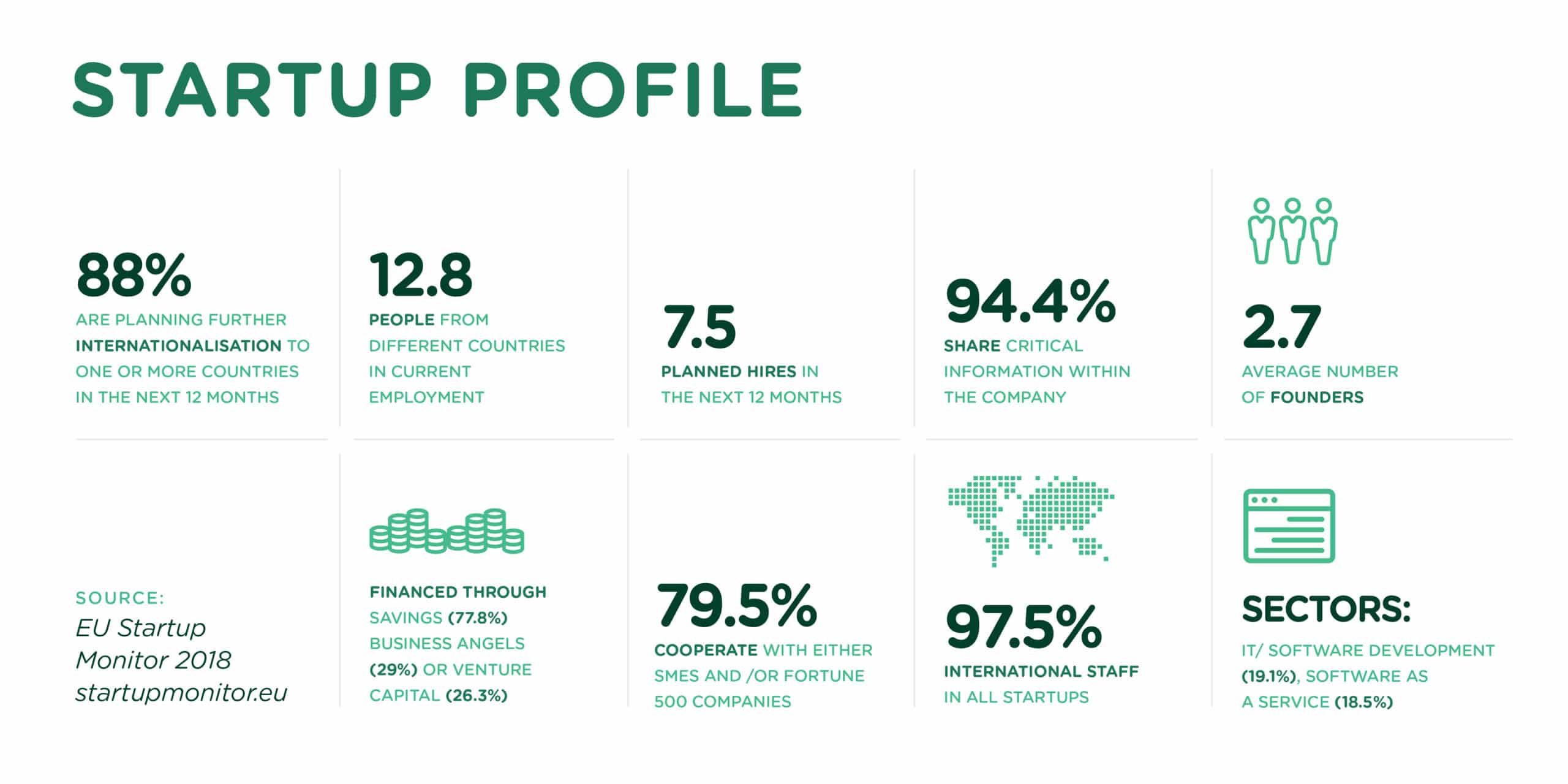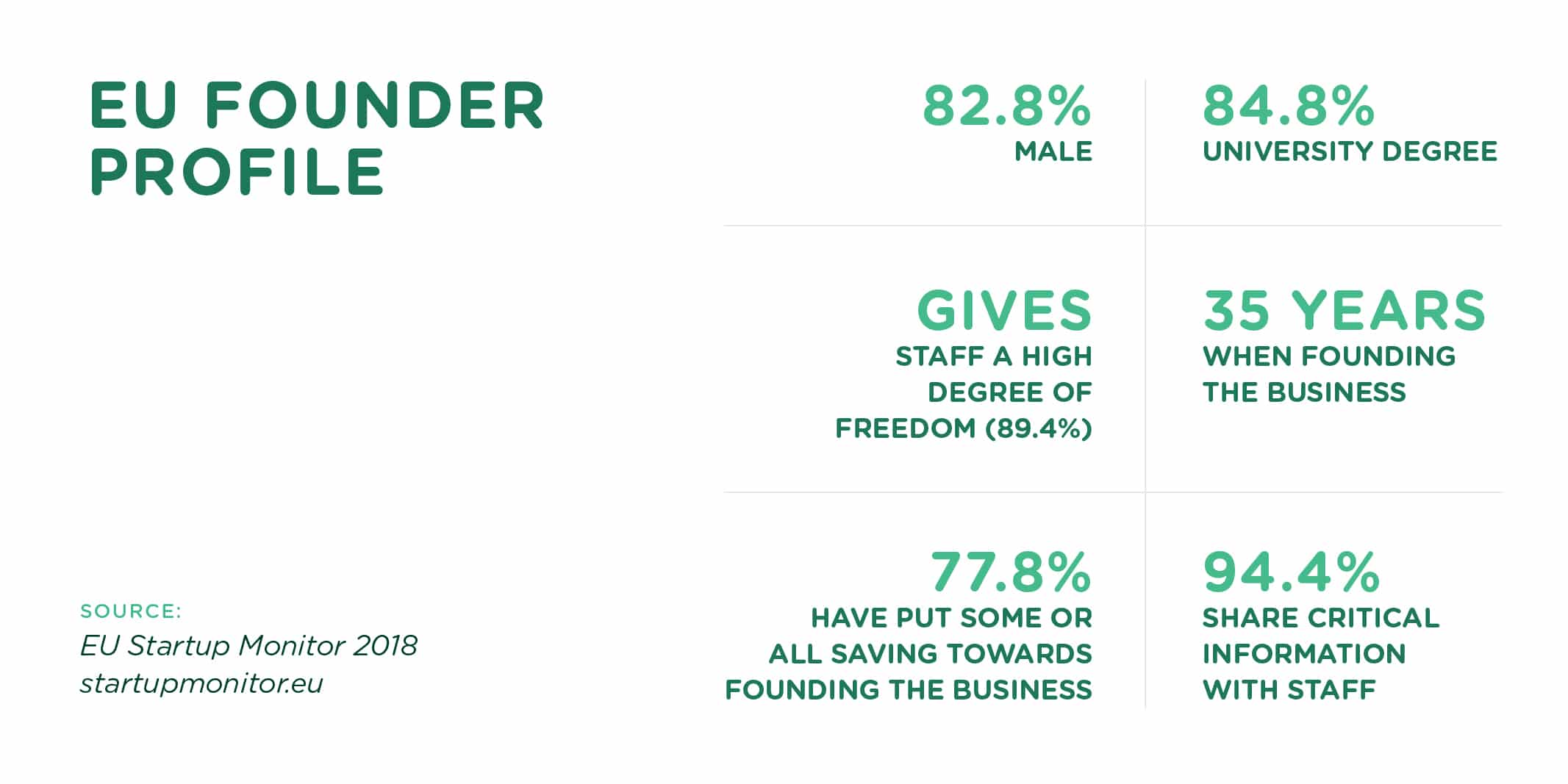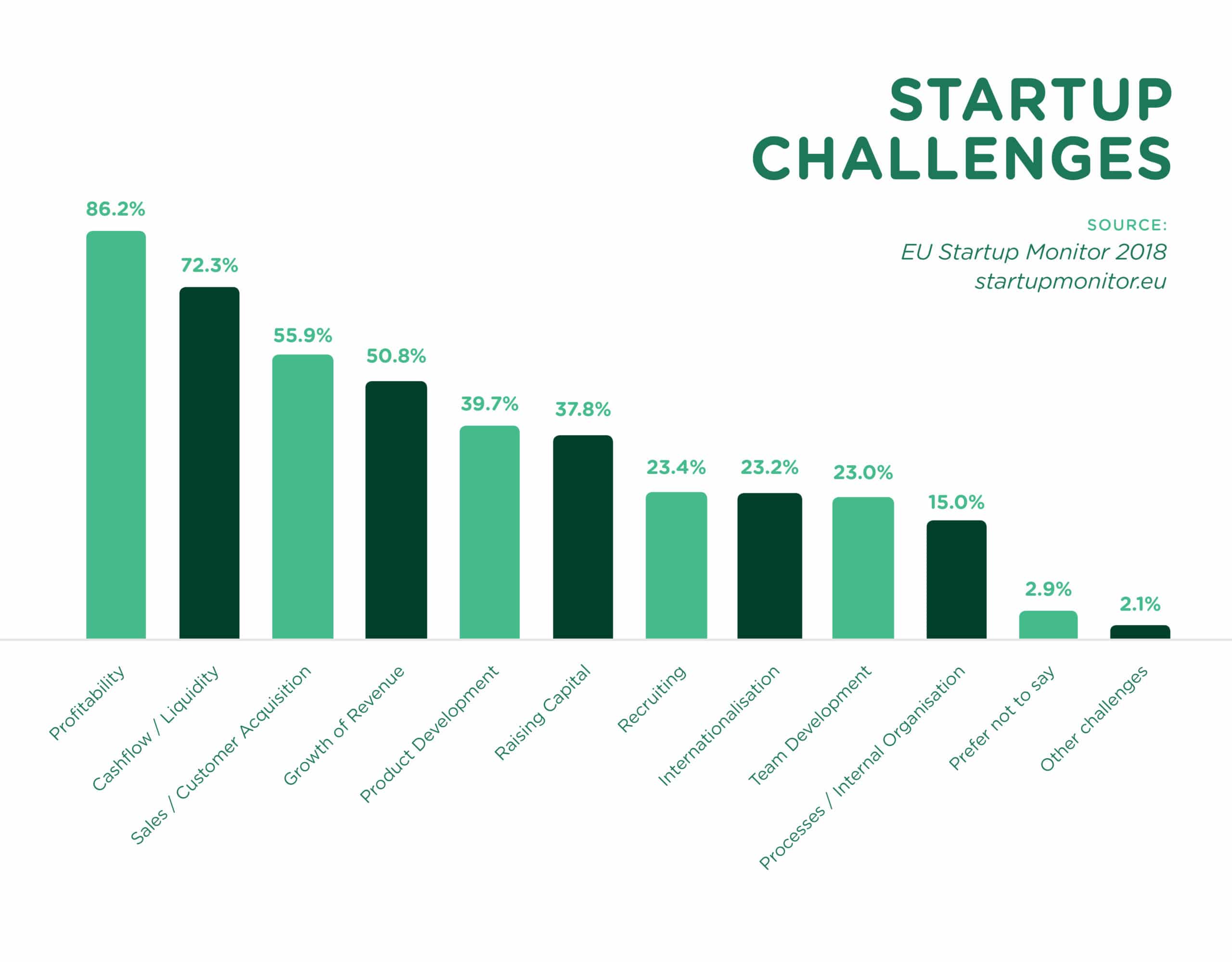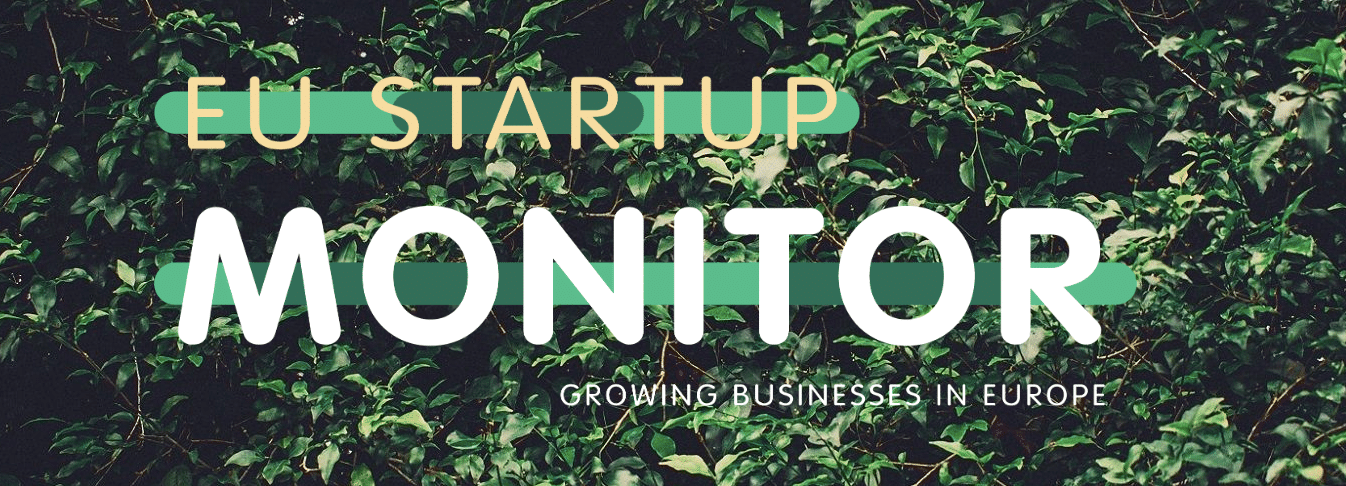The European Startup Ecosystem is maturing. The EU Commission initiated “EU Startup Monitor” presents comparable data for startup ecosystems in Europe, which due to the lack of a common startup definition and use of various research methodologies has not been possible before. EU startups are growing everywhere and with countless initiatives from both governmental and private players, it is a great time to grow a business in Europe.
EU Startup Monitor showcases the development of startup ecosystems in this 2018 European startup report
The European Commission initiated the EU Startup Monitor as a primary research project to gauge the success of its policies and to adjust its activities if needed. Furthermore, the project intends to showcase the current development of startup ecosystems.
Startup hubs and prominent sectors in Europe
The EU Startup Monitor shows that startups are being created all over Europe, with the biggest geographical hubs in London, Berlin, Paris, Copenhagen, and Lisbon.
European startups focus sectors varying from IT/software development (19.1%) to green technologies (4.0%). They offer online solutions (only 0.7% offer offline solutions), generate revenues mainly or entirely through business to business markets (71.8%) and on average employ 12.8 people.


The results show founders have a clear ambition to grow both their company and market size. Founders reported growing employee count (7.5 planned hires within the next 12 months) as well as markets operated in (88% are planning further internationalization). Locations for growth are both within the Eurozone (85.0%) and outside (40.0%). The United States of America and its famous Silicon Valley in the State of California still in the lead (43.4%) as desired spots for expansion.
The average European startup founder
The average founder is male (82.8%), holds a university degree (84.8%) and was 35 years old when founding the startup.


The role of internationalization for EU startups
Concerns about profitability (86.2%) and cash flow (72.3%)—which most EU startups consider being their biggest challenges—are typically answered by expansion. Internationalization is difficult but necessary to overcome the startup’s biggest business challenges.
Moving to another market means moving towards a bigger base of potential customers, a larger pool of people for recruiting, and often new capital markets to approach for further funding.


European startups use partnerships to access new opportunities
Another way to overcome challenges and to access new opportunities is through working together. 71.1% of European startups already engage in cooperations with large corporations (Fortune 500 companies, and/or SMEs).
The EU Startup Monitor’s methodology
The EU Startup Monitor is the only startup study purely based on primary inputs of active European founders. With 21 countries the most comprehensive study of the European Startup Ecosystem. The report is based on an online survey targeted at European Startup Founders (or senior management executives e.g. CEO, CFO, CTO, etc.) which includes active EU startups in all stages and sectors. National startup ecosystem stakeholders support the EU Startup Monitor as well as global media partners such as Crunchbase and Tech.eu.
For the full report and more information visit: www.startupmonitor.eu.
Lisa Steigertahl is an advisor on Entrepreneurship and researcher at ESCP Europe. She served as CEO for the European Startup Network. She has also served as the Head of Research and International Strategy at the German Startups Association. Lisa worked, studied and lived in Cambridge, New York, Paris, Brussels, and Berlin. She has an exceptional network to startup ecosystems around the world.




